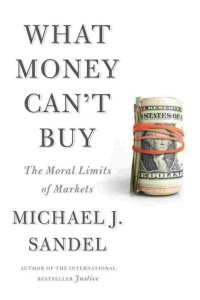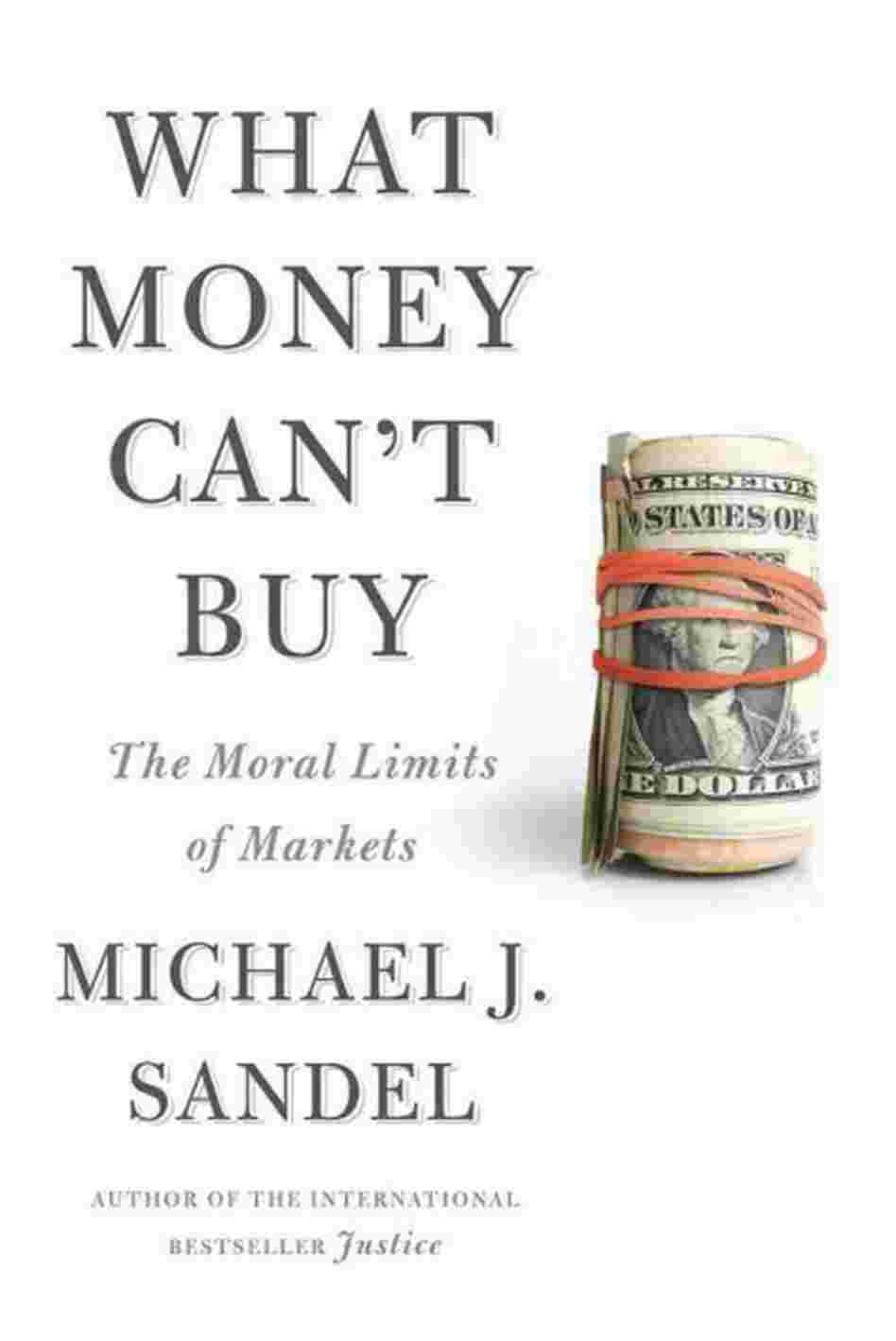 Over the last thirty years, Americans have seen an infusion of market thinking into areas that were previously governed by collective ethics and morality. Today, the drive to make a profit dictates the way we view things like health, education, national security, criminal justice, environmental protection, and even procreation. In What Money Can’t Buy: The Moral Limits of Markets, Harvard University professor Michael J. Sandel argues that markets have become detached from morals, and that it’s time we reconnect them. The book is an engaging exploration of where to draw the line between having a market economy and being a market society.
Over the last thirty years, Americans have seen an infusion of market thinking into areas that were previously governed by collective ethics and morality. Today, the drive to make a profit dictates the way we view things like health, education, national security, criminal justice, environmental protection, and even procreation. In What Money Can’t Buy: The Moral Limits of Markets, Harvard University professor Michael J. Sandel argues that markets have become detached from morals, and that it’s time we reconnect them. The book is an engaging exploration of where to draw the line between having a market economy and being a market society.
In the introduction, Sandel makes it clear that providing definitive answers to the questions he raises is not his intention. Instead, he views himself as the kickstarter of a much-needed, public debate on markets and morality, and offers a philosophical framework in which we might have the conversation. The inquisitive title of Sandel’s book reinforces this position. For now, his focus is on highlighting the questions we haven’t been asking over the last three decades, but probably should have been.
So, what does economics have to do with morality? Since he’s the expert, I’ll let Sandel explain:
“Some of the good things in life are corrupted or degraded if we turn them into market commodities,” Sandel argues.
If the role of markets were simply to allocate goods, Sandel would be hard-pressed to find an ethical objection to using an economic rationale to solve all our problems — but, he explains, the reach of markets goes beyond goods allocation to express and promote attitudes toward whatever is being exchanged. It is our job as members of a just society to interrogate what those attitudes are, and whether they reflect the values we want to promote in our culture. If we determine that the values are out of sync with the ethical standards of our culture, then we need to regulate the markets to avoid the unintentional promotion of morally questionable social norms.
For many Americans, regulation is a dirty word. But Sandel asks us to consider the idea of regulation in the context of the parameters we’ve already placed on things that currently cannot be bought and sold, such as human beings and civic duties. For example, it is illegal in the United States to sell one’s vote in an election or a child through adoption processes. These boundaries were not established by the rules of economics; they were established by our moral compass as citizens in a participatory democracy.
So, what values do our markets presently exude? And are we satisfied with that? Because Sandel isn’t. He believes we need more robust engagement in civic discourse around these issues.
“When we think of the morality of markets, we think first of Wall Street banks and their reckless misdeeds, of hedge funds and bail-outs and regulatory reform,” he writes. “But the moral and political challenge we face today is more pervasive and mundane — to rethink the role and reach of markets in our social practices, human relationships, and everyday lives.”
As funny as it is intellectually engaging, What Money Can’t Buy is an excellent point of entry for those concerned with addressing the challenges of markets and morality. It will augment your view of laissez-faire economics and what is a stake in our society if we don’t intervene.
Mandy Van Deven Mandy Van Deven was previously In The Fray’s managing editor. Site: mandyvandeven.com | Twitter: @mandyvandeven
- Follow us on Twitter: @inthefray
- Comment on stories or like us on Facebook
- Subscribe to our free email newsletter
- Send us your writing, photography, or artwork
- Republish our Creative Commons-licensed content

